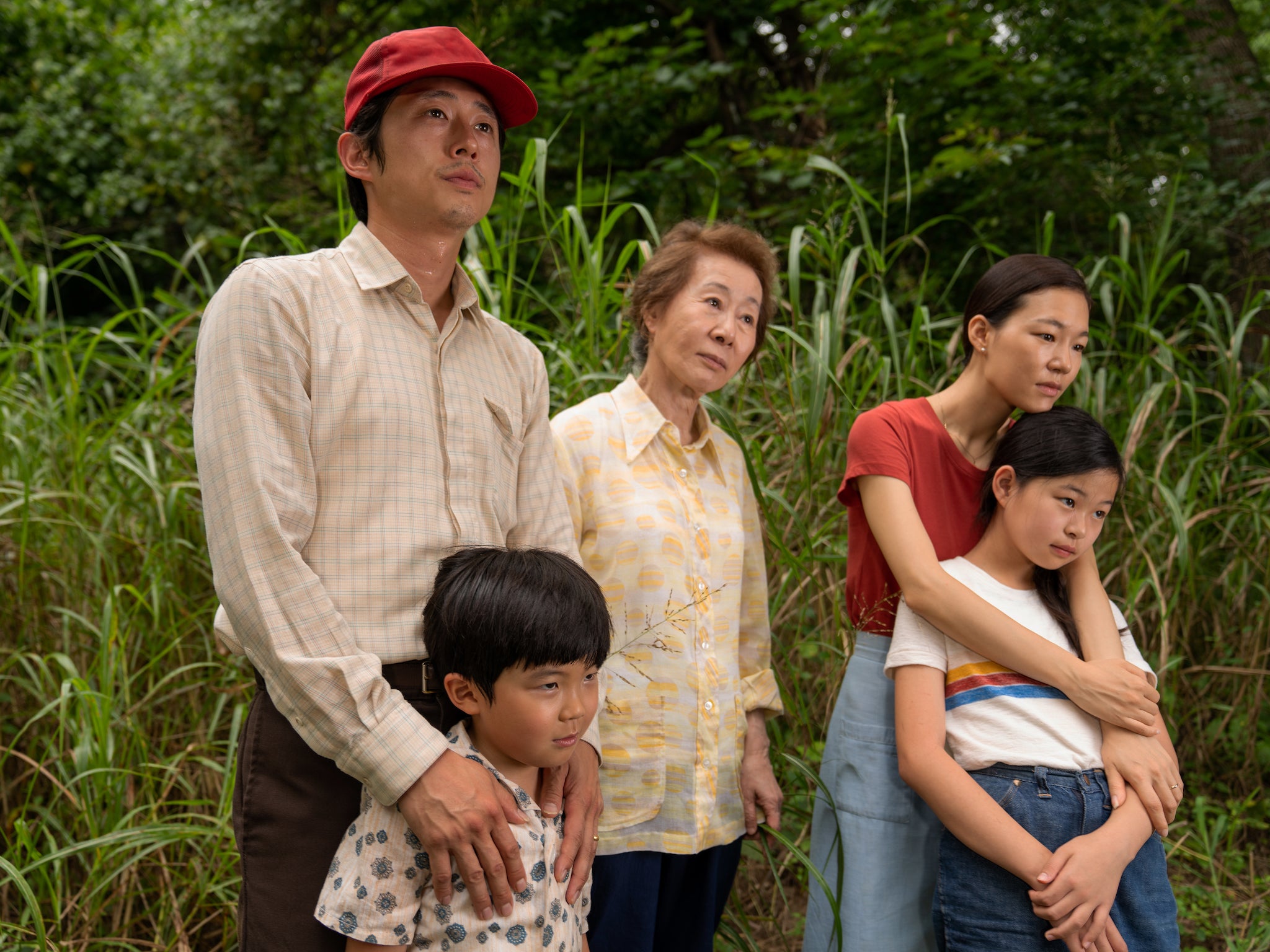Minari review: A beautiful and tender drama that wrestles with America’s folkloric image of itself
Lee Isaac Chung’s film has the gentle, hazy energy of a memory – set in the Eighties, it draws partially from his own childhood experiences
Dir: Lee Isaac Chung. Starring: Steven Yeun, Han Ye-ri, Alan Kim, Noel Kate Cho, Youn Yuh-jung, Will Patton. 12, 115 mins
This year, the Golden Globes hit a new low when it disqualified the beautiful and tender Minari from the Best Picture (Drama) race. Since its central, immigrant family often converse in Korean, it was treated purely as a foreign language film, despite being directed by an American, Lee Isaac Chung, produced by American companies, and set in the state of Arkansas.
Minari, in fact, is a profoundly American film that wrestles with the country’s folkloric image of itself as a promised land – or, as the film’s patriarch Jacob Yi (Steven Yeun) calls it, a “garden of Eden”. Jacob has become possessed by an idea: he’s moved his family from California to the rural south, where he hopes to grow the kinds of vegetables his fellow Korean-Americans have such a hard time getting their hands on. And so the Yis – Jacob, his wife Monica (Han Ye-ri), and their two children – say farewell to relative stability, with its regular work and tight-knit community. They live now in an elongated trailer, parked in a square of farmland that holds promise, but not much else.
Chung’s film has the gentle, hazy energy of a memory – set in the Eighties, it draws partially from his own childhood experiences. Lachlan Milne’s cinematography is drenched in golden rays, Emile Mosseri’s score twinkles like stars, and the narrative often focuses on Jacob and Monica’s endearing but mischievous son David (Alan Kim, who is impossible not to love). When his parents fight, he and his older sister Anne (Noel Kate Cho, who's more passive, but absorbs everything like a sponge) make paper airplanes scribbled with the words “Don’t fight!” and propel them into the air. Their white neighbours are shown in a fairly generous light. Their racism is limited to the odd ignorant comment and intrusive question.
But Minari allows its conflicts to coil up and release in the most surprising and affecting ways. An immigrant’s heart is a battleground between past and present, a home that once was and a home that is now. And Chung’s script allows those ideas to manifest in a world of signs and symbols, the very building blocks of the American myth. Jacob, at first, dismisses the pseudoscience of water divining, since “Korean people use their heads”. He’s baffled by Paul (Will Patton), the local kook who speaks in tongues, is seen dragging a large wooden cross down the road, and performs a banishing spell in their home to rid them of the spirit of a former occupant, who died by suicide after failing to cultivate the soil.

A reminder of what Jacob and his family left behind arrives in the form of Monica’s mother, Soon-ja (Korean screen legend Youn Yuh-jung, whose eyes sparkle like morning dew). She bears gifts: gochugaru (Korean chili peppers), anchovies, deer antler broth, and the minari plant. To David, who was born in California and always defaults to English, she’s a mystery – not at all what he believes a grandma should be. She doesn’t bake cookies but plays cards. Eventually, though, a kind of peace and understanding forms between them. Minari is a story of the American Dream. But Chung’s brilliance is in how he adds depth and complexity to those foundational ideas – it’s in the spaces in between that we find love, loss, hope, and regret.
Join our commenting forum
Join thought-provoking conversations, follow other Independent readers and see their replies
Comments
Bookmark popover
Removed from bookmarks